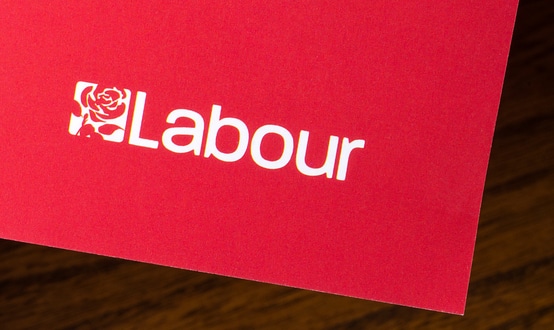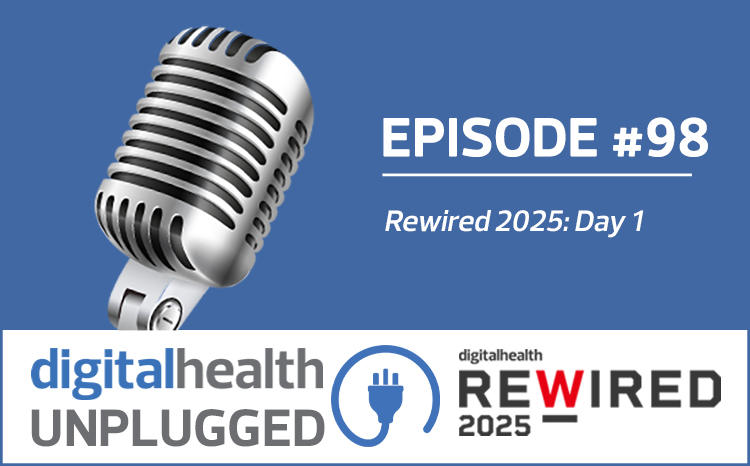General election 2024: Health tech leaders react to Labour victory
- 5 July 2024

“Change begins now,” said Sir Keir Starmer this morning, as it was declared that Labour had won the 2024 general election. We asked health tech leaders for their reaction to Labour’s landslide victory and what the priorities should be for Wes Streeting as he takes on the role of health minister. Here’s what they had to say:
Tom Whicher, chief executive, DrDoctor
“The public has spoken – Labour now has a clear directive to follow through on its NHS pledges.
“I’m excited to see campaign promises become a reality – how quickly can they put the 40,000 additional appointments a week into place to drive down the wait list?
“And, more broadly, when will investment in new technologies to give patients control over their own medicine, appointments and health needs be made?
“We know there is no silver bullet here but at DrDoctor we do know from the work we do with more than 70 trusts, that a hybrid approach to healthcare works.
“I am optimistic that Labour shares our commitment to connecting the disparate dots and siloed operational workflows across secondary and tertiary care settings to embed truly system level change.”
Pritesh Mistry, fellow in digital technologies, King’s Fund
“It is good to see that the Labour Party are seeking to utilise existing technology, such as the NHS App, while intending to harness AI for diagnostics, demonstrating they recognise the importance of technology for the future of the NHS and social care.
“The challenge will be to remain focused on long term change by prioritising foundations and enablers.
“It is essential that there is a suitably skilled workforce, both clinical and technical, with the capacity to assess and integrate technologies into workflows.
“Additionally, the infrastructure funding announced in the spring spending review needs confirming so that digital infrastructure can be modernised, hopefully resulting in productivity improvements and cost savings.
“This technical infrastructure needs to be developed with an eye on emerging technologies to ensure data can be captured and innovation can thrive, and it will be essential that staff and the public feel trust in how the data is used.”
Steve Sawyer, managing director, The Access Group HSC
“Prior to the election, Wes Streeting rightly recognised that primary and social care services need to be prioritised if the NHS is going to tackle pressures across the care continuum, including in acute.
“However, their manifesto did little to outline the practicalities, and there was no mention of funding. Now in government, Labour has to deliver on these commitments.
“Quick wins include scaling the digitisation of effective services like social prescribing, which is proven to divert pressure away from GPs and support patients, particularly those with mental health needs, in the community.
“Tech-enabled care is another tangible solution that empowers people to manage their conditions in their own homes and helps social care services to support a larger cohort of individuals more efficiently.
“Now is not the time for reinventing the wheel, but about focusing on scaling digitally enabled transformation across all parts of the NHS and social care, which has often been overlooked.”
Jane Rendall, managing director, Sectra UK and Ireland
“The Labour government’s commitment to modernise the NHS with advanced technology, including AI and digital health records, presents significant opportunities for health tech businesses, and for the NHS.
“Any increases in funding and support for tech, must be met with a detailed and evolving understanding of where the biggest difference can be made.
“Diagnostics is one key area that is already seeing investment, but where enormous opportunity is also waiting to be untapped in using technology to both address immediate demand pressures, and to enable entirely new ways of harnessing in-demand clinical expertise.
“The opportunity is to create the headspace and resource needed to discover and act on the art of the possible.”
Lee Francis, sales and marketing director, PatientSource
“Labour has a prime opportunity to harness the momentum of using technology to address critical perennial issues such as the overstretched workforce and unprecedented waiting lists.
“However, given that it was a previous Labour government that introduced the National Programme for IT, it’s vital that we don’t return to having monolithic suppliers and the assumption that a ‘one size fits all’ approach works.
“Likewise, technology convergence, especially when it comes to frontline digitisation, isn’t the solution.
“It’s time to adopt a new health tech strategy that better acknowledges the innovation and benefits derived from SMEs – their agility, responsiveness and tailored approaches to individual trusts can deliver much-needed value for the NHS.”
Jamie Whysall, principal, head of healthcare, Netcompany
“Three things stood out for me in Labour’s manifesto: the emphasis they put on improving patient flow through the system, the focus on prevention, and the commitment to developing the NHS App. These are all linked.
“The NHS App could be the place where people go when they have a referral, to see which hospitals have the shortest waiting times, which would automatically smooth patient flow.
“It could also be the platform for delivering health advice and nudge interventions, based on an individual’s data. This is something we have seen in Denmark, which is very app-based.
“Putting data into the hands of patients improves satisfaction and drives prevention.
“The challenge is the underlying data architecture at a national level. Labour is either ignoring or is ignorant of the fact that it is just not there today.
“However, it has just won a big majority, so it will have the mandate to make some big and bold decisions. And it will be looking at a second term, so it will have a ten-year runway to see the benefit of doing that.
“This has been an election about change and Labour has the opportunity to make a positive change for the system, clinicians, and patients.”
Dr Mark Ratnarajah, practising NHS paediatrician and UK managing director for C2-Ai
“Manifesto pledges for the NHS now spell out two immediate government priorities: to reduce waiting lists safely, and improve maternity care.
“Pre-election promises to increase appointments can help to address waiting lists, but a comprehensive approach requires addressing demand as well as supply.
“The government has an opportunity to enable adoption at-scale of high impact work seen in integrated care systems that have reduced length of stay, harm, complexity, and A&E attendances, by using technology to understand hidden clinical risks for people on waiting lists, and to identify individuals who are most-in-need as they await elective care.
“Hospitals are now exploring how the underpinning tech-driven methodology enabling the waiting list approach, could now transform how they understand, measure and act on risks in maternity.
“With a desire to prevent harm, and act on issues before they escalate into crises, this could support maternity teams nationally.”
David Simpson, owner and head of product and partnerships, Medilogik
“Labour put a commitment to reduce waiting lists at the heart of its general election campaign.
“It has promised additional capacity to do this, but to succeed it will also need IT systems to support the accurate recording of data.
“Without these, it will not be possible to make sure that resources are used to the maximum and duplicate procedures are not carried out to the detriment of the patient and the environment.
“When projects are launched, it is absolutely crucial that NHS England and other bodies liaise in a timely fashion to enable med tech suppliers to support them and audit the outcomes.
“Labour’s commitment to expanding the use of community diagnostic centres (CDCs) and outsourcing work to the independent sector should undoubtedly have a significant effect on waiting times. Again, though, technology needs to be considered.
“Data captured by CDCs and private providers needs to be shared with the referring trust’s electronic patient record (EPR) to ensure we are not creating a surveillance problem in the years ahead, due poor data sharing.”
Christopher Wright, chief executive, beetroot digital health solutions
“With stretched resources and growing waiting lists, it’s vital that the NHS has access to digital tools that help staff do more with less.
“Therefore, now in power, Labour needs to deliver on its commitments to use health tech to support healthier, independent living, quickly and effectively.
“Specifically, they need to invest further in remote patient monitoring and management tools, so that the NHS can scale these solutions beyond the pockets of proven examples in England (which span more than just virtual wards).
“These technologies enable clinicians to assess patients in the home or community, mitigate unnecessary trips to the hospital for certain patients, and help prioritise those who need to be seen by a clinician urgently.”
Ryan Reed, digital transformation expert, SPS
“The focus must be on the workforce and specifically, ensuring existing staff are adequately equipped to do their jobs.
“Our recent research with the Royal College of Nursing Information and Learning subsidiary showed that nurses spend half their time on admin like tacking down transport and booking appointments, which can be managed by digital tools and non-clinical staff.
“This wholly avoidable burden, which isn’t just affecting nurses, is one of the main reasons staff want to leave the NHS.
“The Labour government has to tackle this systemic problem by delivering the universal adoption of technology that delivers outcomes-based transformation, such as EPRs and digital booking services, alongside outsourcing that can remove menial tasks and increase productivity.
“The long-awaited tech workforce strategy that didn’t transpire under the previous government would go a long way in ensuring there is a clear mandate and plan to deliver this.”
To read more views from health leaders about what the priorities should be for the new government see here.




